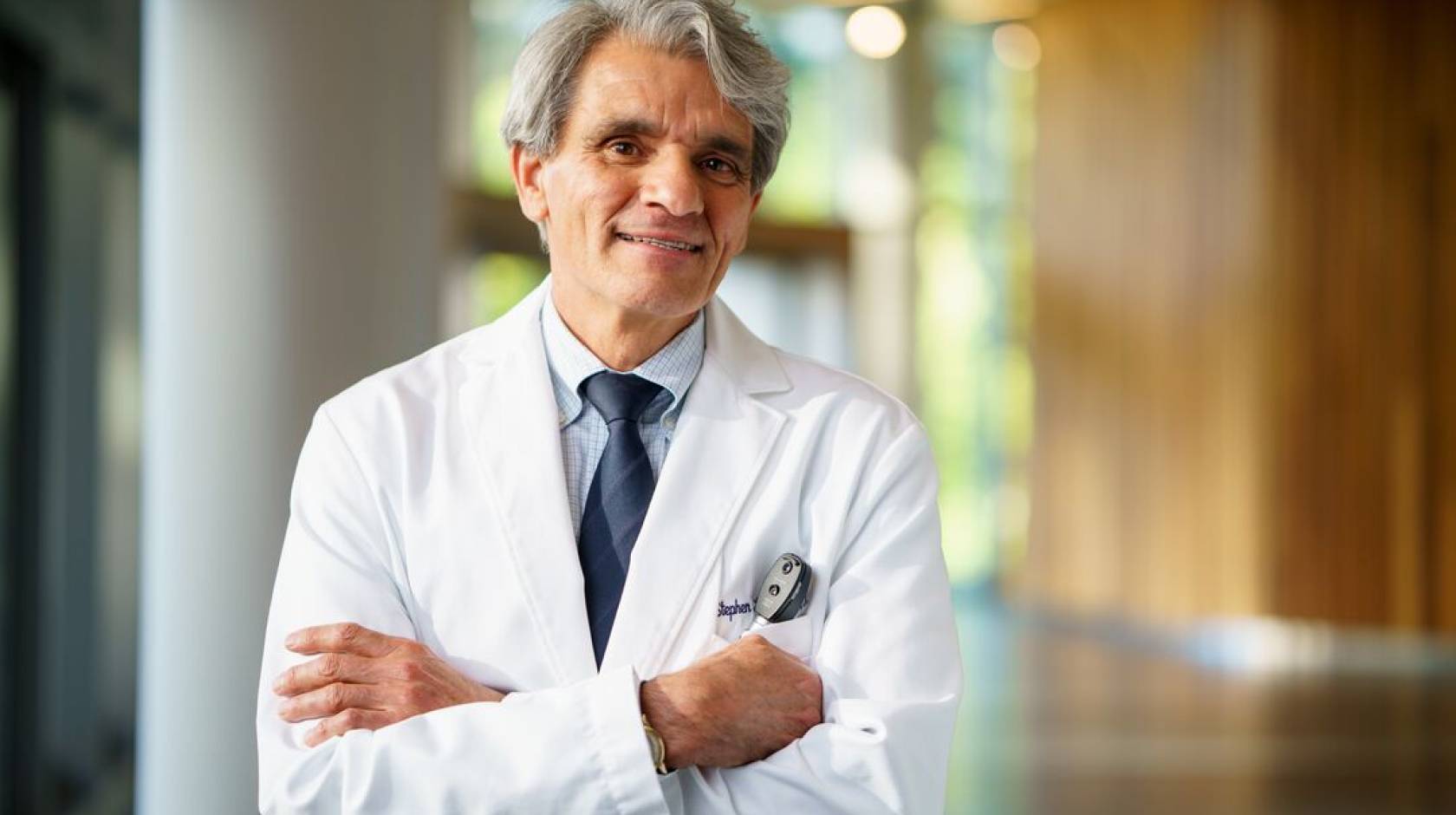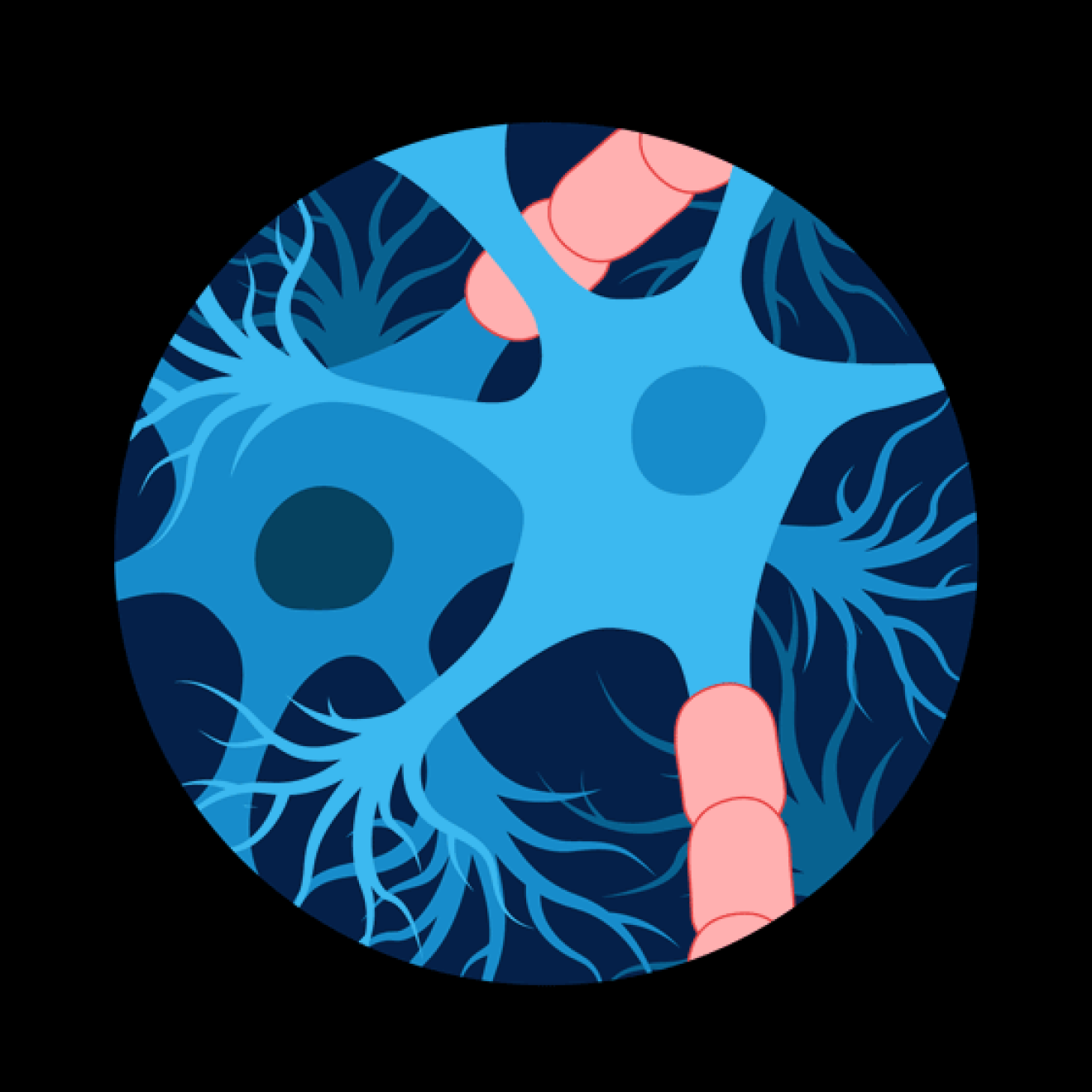Suzanne Leigh, UC San Francisco

Neuro-immunologist Stephen Hauser, M.D., whose maverick thinking transformed the treatment landscape for patients with multiple sclerosis (MS), has received the 2025 Breakthrough Prize in Life Sciences.
Hauser, a UCSF professor of neurology and director of the Weill Institute for Neurosciences, was recognized April 5 for overturning “the scientific consensus on the mechanism of MS, identifying the immune system’s B cells as the primary driver of damage to nerve cells.” The award also cited his instrumental role in developing therapies that have “revolutionized modern treatment of the disease.”
Hauser shares the award with Alberto Ascherio, M.D., DrPH, of Harvard University, who discovered that contracting the Epstein-Barr virus raises the risk of developing MS by a factor of 32.
Now in its 14th year, the Breakthrough Prize was created by founding sponsors Sergey Brin, Priscilla Chan and Mark Zuckerberg, Julia and Yuri Milner, and Anne Wojcicki as the “Oscars of science.” Prizes of $3 million are given for three awards in life sciences, one in fundamental physics and one in mathematics. This year, there is a special prize in fundamental physics.
“It is an honor to accept the Breakthrough Prize,” Hauser said. “This was the work of many: physician-scientists who connected laboratory with clinic; industry leaders and private funders who believed in high-risk undertakings; the National Institutes of Health that over many years supported the foundational science; and especially the patients who courageously partnered with us in clinical trials. Without them, this breakthrough would not have been possible.”
‘Dogged determination’ results in B-cell breakthrough
Hauser’s B-cell theory had been described as “biologically implausible” in challenging the prevailing thought that T cells caused the breakdown of the nerve coating myelin that is involved in MS. Hauser’s work identified B-cells as the culprit in orchestrating the immune damage that attacks the myelin, causing inflammation and disrupting nerve signals. That theory triumphed and led to the 2017 approval of ocrelizumab, the first in a new class of therapies for MS.
“A few decades ago, young scientists were advised to pick another disease to study,” said UCSF Chancellor Sam Hawgood, MBBS. “Today, treatment for MS has been transformed, in no small part due to Steve’s dogged determination in uncovering the role of B cells the immune damage.”
Since then, B-cell therapies have become standard of care for patients globally, reducing relapses, halting or delaying disability progression, and decreasing lesions and brain volume loss. Today, ocrelizumab is the bestselling drug in the history of pharmaceutical giant F. Hoffmann-La Roche AG, reflecting the demand for therapies in the field.
The new therapies have also transformed the prognosis for patients who face the debilitating disease.
“In the past, newly diagnosed patients would be told that they may require a cane or wheelchair within 15 years. Today, our data indicate that many new patients can expect lives free from disability,” Hauser said.
“I have never been more optimistic for the future: what’s in store for our patients today, as well as those developing MS in the future, who may soon be diagnosed — and treated — even before they experience their first symptom.”
‘Eureka moments’ change the future for patients with MS
Hauser, a New York City native, joined UCSF in 1992 following a faculty position at Harvard Medical School. In his 2023 memoir, “The Face Laughs While the Brain Cries,” he recounts a stunning encounter with a young woman during his medical residency. Once a competitive athlete and White House attorney, she was now ravaged by the disease. He met her propped up in a hospital bed, unable to communicate, her body paralyzed, her devastated parents by her side. In that moment, Hauser resolved to make MS his life’s work.
Over the next few decades, his career would be marked by “eureka moments” that challenged expert wisdom. The first: recognition that widely studied rodent MS models were flawed. These showed that removing B cells worsened disease. But the tissue damage in these models did not resemble what was seen in true MS.
After years of setbacks, he used a different animal model that replicated lesions in human disease. He discovered that B cells and the antibodies produced by them spurred the disease. This was corroborated by an identical immune pathology found on brain tissue in patients with MS.
“By now, it was clear that B cells, not T cells, were the central actors in the disease mechanism,” Hauser said.
He applied for government funding to test a B-cell targeting cancer drug for MS, but was denied. Next, he approached Genentech, the drug’s manufacturer. A preliminary trial of a single dose of the drug went ahead. Expectations were low.
Instead, “there was an almost immediate and nearly complete blockade of all new inflammation in the people who had received the drug,” Hauser recalls.
A few years later, Genentech, by then acquired by Roche, developed ocrelizumab. This was followed by the approval of ofatumumab in 2020, also pioneered by Hauser and colleagues.
The challenge to reach the remaining patients
Looking ahead, Hauser is optimistic that future research will benefit more patients. He is a co-founder of a consortium that drove the search for genes associated with MS, more than 230 of which have since been identified. He’s hopeful that a recently discovered genetic region may lead to new approaches that help the patients with progressive MS whose response to B-cell therapies is more muted. It’s a challenge that invigorates him.
“The wonderful part of medical research is that we learn so much about the results of our therapies at the bedside. That’s where the rubber meets the road,” said Hauser. “When the lab and the clinic come together, magic happens. That’s the MS story.”
Hauser follows biochemist Peter Walter, Ph.D., and physiologist David Julius, Ph.D., both of UCSF, who received Breakthrough prizes in life sciences in 2018 and 2020, respectively.
Hauser is the recipient of the American Brain Foundation Scientific Breakthrough Award, the Jacob Javits Neuroscience Investigator Award and Charcot Award. He served as chair of the Research Advisory Committee for the U.S. Department of Veterans Affairs and was appointed by the Obama administration to the Presidential Commission for the Study of Bioethical Issues.

